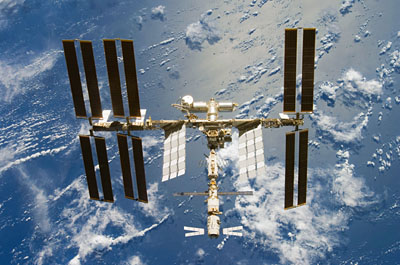The virus was discovered in one of about fifty computers operating on the space station with the help of anti-virus software and according to NASA, does not endanger the systems of the International Space Station ● For "security reasons" NASA refused to say how the virus got to a laptop on the International Space Station
Thomas Cleburne, InformationWeek

The American space agency NASA confirmed on Thursday that a virus was discovered in a portable computer on board the International Space Station. This is one of about fifty computers operating on the space station. The virus was detected with the help of anti-virus software and does not endanger the systems of the International Space Station or the activities carried out on it, NASA spokesperson Kelly Humphreys said. NASA is currently investigating the incident and based on the findings of the investigation, appropriate instructions will be drawn up.
The news about the discovery of the virus was published for the first time last Monday, on the news site SpaceRef.com. The site stated that it is a W32.Gammima.AG worm, which steals access passwords to online games. However, it is unlikely that the astronauts play World of Warcraft in their spare time because the space station is not permanently connected to the Internet. On the website SpaceRef.com, they hypothesized that the virus arrived at the space station on a memory card or USB drive.
For "security reasons" the Parisian refused to say how the virus got to the laptop on the International Space Station. "This is not the first time a virus has been discovered on the space station," Humphreys said, "but it doesn't happen often." He added and reassured, that none of the viruses discovered so far in the space station have harmed its activity.

12 תגובות
Until the virus writers are executed there will be no end to it.
The damage to the systems is measured in billions of dollars. It's time to take action.
In Italy, someone planted a virus on the mafia's computers. They did not account for him and issued a contract for him.
A. Ben Ner:
indeed!
To duplicate is in the building admired and means performing the action on yourself.
It is true that language and name replicate programs, but it is not the program that replicates itself.
Beyond that, as mentioned, it is a very reliable copy and as soon as something goes wrong, it is detected with a very high probability by various CRC tests and the defective copy is rejected.
The duplicates are also usually from the same source and are not a duplicate of a duplicate, so mistakes (which, as mentioned, have a low probability of occurrence, what's more, even if the mistake passed the automated tests, it is likely to still fail during its lecture or while the user is checking the results) are not usually duplicated into additional copies and so on Accumulation of mutations is avoided.
To Michael
The opening to your response: "Plans are not duplicated..."
is that so ?
A. Ben Ner:
Programs do not replicate and when they are already copied the chance of making a mistake is much lower than the chance of a copy mistake in DNA.
Therefore, the scenario you described is with a very high probability - really a fantasy
Ben-Ner
What you said makes sense.
Even though I also read the book that hints at the possibility.
By breaking the "firewalls", the entire world wide web is restricted to the most confidential, secure places.
Imagine an innocent child with the most random button press, unwittingly triggering the threat we all try
prevent this scenario.
Books come to warn, so that we are aware of everything that is happening, and what things we can be a part of, if we are not careful in our actions, even the smallest.
Blind anxiety and revenge are not helpful - they are self-worldly goal.
Even layman's and idiotic anger does not contribute to anything, and only aggravates situations.
A space station, an astronaut is isolated for months in zero gravity and trapped inside a not very large block of metal. When there is a connection to the net, he has no choice but to go to porn sites to regain some sanity.
But what is really interesting in my opinion is to learn that NASA developed its own antivirus. Apparently there are budget fatties out there that we can't even imagine exist.
Greetings friends
What's more, it's still not certain that they do know, exactly, through where and how the virus entered the station's computers.
Imagine the fantasy that in the end it will be discovered that as in the biological world, viruses are possible in the computer world as well
Can, in a software dense environment, be created in a way...spontaneous, out of nowhere software segments that are created in anti-interaction with the main software and disconnect from it.
very true.
Yoav:
This is not "safety through obscurity" but "safety through not publishing the exact location of the breach that invites the thief" and this is a completely logical step.
Do you think that publishing the way to introduce viruses to the station will benefit them in any way?
Isn't it better to close the hole and the mouth?
Hugin:
In the end we also die but that is no reason to cross the road without looking left and right.
Let's not forget that life is first of all micro organisms; And there is another fact to add to this: finding water on Mars.
At the end of a complete cycle, everything is revealed, so that every "ambiguity" is revealed in the end.
It's a little sad that NASA is taking the "safety by obscurity" approach, which is notoriously ineffective.